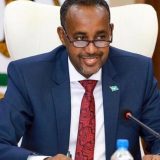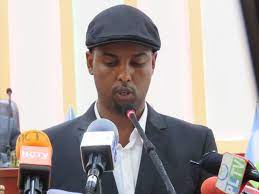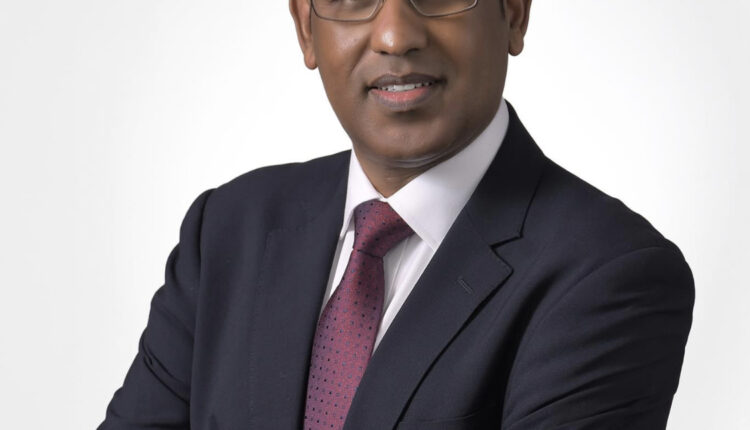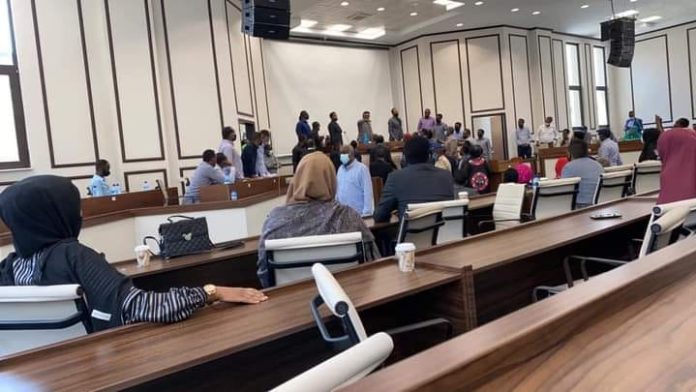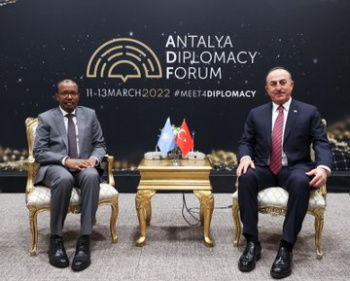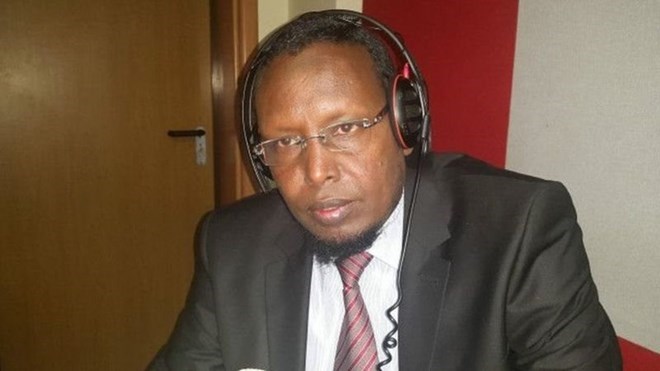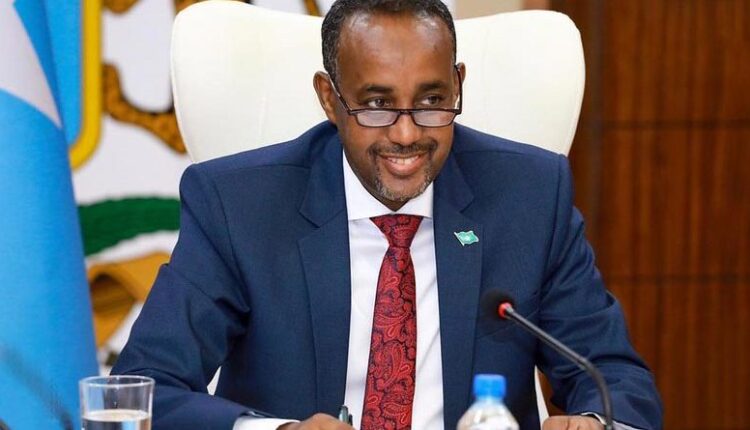UN alleges ‘plot’ to steal Somali assets
Nairobi, Kenya – A confidential UN report alleges that Somalia’s President Hassan Sheikh Mohamud, his former foreign minister and an American law firm conspired to steal public funds by engaging in secret contracts that gave them hefty percentages from the country’s recovered overseas assets.
The report, obtained by Al Jazeera and presented to the UN Security Council in July, urges the UN to call on member states and financial institutions to freeze Somali assets under their jurisdiction until “a genuinely transparent and accountable recovery process can be established”.
“Continuation of a recovery process in secret … risks further exposure of overseas assets to misappropriation,” said the report, urging the Somali government to disclose the original list of identified assets, which now is only known to President Mohamud and the Maryland-based law firm Shulman Rogersas well as two other individuals.
The Somali government said it would only respond to the report in detail when it is officially released. Others accused of wrongdoing denied the allegations levelled against them.
Shulman Rogers dismissed the allegations as “false” and “malicious,” with Jeremy Schulman, the law firm’s man in charge of the Somalia project, saying, in a statement sent to Al Jazeera, that the report’s intention is “to discredit the Somali government, our law firm, and the individuals who have worked hard to support the asset recovery project for the people of Somalia”.
Jarat Chopra, the coordinator for Somalia and Eritrea Monitoring Group who presented the report to the UN Security Council’s sanction committee, said his group stands by its findings, but refused to comment further.
Terms challenged
The group’s mandate includes monitoring misappropriation of public funds as well as reporting on the arms embargo imposed on Somalia in 1992.
The report says attempts to steal assets were thwarted after former Central Bank Governor Yussur Abrar challenged the terms of Shulman Rogers. Abrar quit after seven weeks in office. Her action generated an international scrutiny that later enabled her successor to protect some of the recovered assets.
The report, however, alleges there is still “a secret architecture of misappropriation,” involving President Mohamud, former Foreign Minister Fawzia Yusuf Adam, Shulman Rogers as well as Musa Haji Mohamed Ganjab and Abdiaziz Hassan Giyaajo Amalo. The report says Ganjab and Amalo, who vehemently deny the allegations, served as government advisors as well as facilitators for Shulman Rogers.
“What Yussur said is baseless,” Adam said in a recent interview with the satellite TV station, Somali Channel.
The July report said its findings “reflects exploitation of public authority for private interests and indicates at the minimum a conspiracy to divert the recovery of overseas assets in an irregular manner”.
Mohamed Husein Gaas, Horn of Africa analyst at the Oslo, Norway-based Fafo Institute for Applied International Studies, told Al Jazeera the UN allegations against President Mohamud will definitely disappoint many Somalis who thought that “his regime would be a fresh start towards restoring a credible Somali government”.
“President Mohamud would have better reassured the Somali public if he had admitted his administration’s shortcomings and started to fix them,” he told Al Jazeera.
The report cites Shulman Rogers as saying that $12,326,971.63 worth of assets held in the United States was transferred to its custody, with the firm retaining $2,711,125.97 for “fees, expenses and set asides,” including its five percent bonus, $616,348.63 and six percent for “expense set aside,” $739,618.30.
“A final amount of USD 9,001,092.25 was transferred on 2 and 5 December 2013 to a Central Bank account at the Ziraat Bankasi (Agricultural Bank of the Republic of Turkey).”
The current governor of the central bank of Somalia, Bashir Issa Ali, did not receive any indication of the source of $9,001,092.25, or which assets the transfer related to or an accounting of recovered assets, said the report.
It also alleges that a total of $922,913.38 was withdrawn, between July 30 to August 31, 2013, from the central bank of Somalia to defend Abdusalam Omer, the former central banker whom the UN accused of corruption last year.
The report says the move further exacerbated allegations of using public funds for private interests. The 2013 allegations concerned Omer himself and not the government as a whole, says the report.
The report alleges that Shulman Rogers conducted a “counter-investigation” to preserve its control over the effort to recover overseas assets and counter any perceived opposition to it.
“‘Pie-cutting’ of overseas assets by those involved in the project entailed retention of excessive percentages and direct payments from recovered assets as well as attempts to circumvent deposits in the Central Bank of Somalia,” Chopra said.
Frozen assets
But Jeremy Schulman from Shulman Rogers countered: “Instead of misappropriating assets, the records show a careful attempt to safeguard assets and place them under the control of the Central Bank and the president.”
Foreign countries and financial institutions have frozen Somalia’s overseas assets following the implosion of that country’s central government in 1991, but feverish efforts to recover such assets – including cash, gold and ships – have restarted after the election of President Mohamud in 2012.
In 2013, however, the Shulman Rogers won an exclusive contract with Somalia’s Central Bank for the recovery of the country’s oversea assets.
The contract allowed the firm to retain six per cent of all recovered Somali assets for unnamed costs and expenses, in addition to the five per cent of all recovered assets as a bonus additional to its fees. The deal also did not oblige the firm to transfer the assets, when recovered, directly to the central bank, but instead put them under the control of President Mohamud.
As per the central bank’s law, the bank is autonomous and should not take instructions from government entities, including the president.
But the UN report alleges that Shulman Rogers “consistently exploited the authority of the president and the authority of the Central Bank Governor intermittently as levers of convenience, placing the assets under the control of the president pursuant to a contract signed by the Central Bank Governor”.
“While the contract relied on the authority and the name of the Central Bank as the client, control over the assets was intended to be exclusively retained by the president, thereby exposing the recovered assets to misappropriation by those involved in the recovery project,” said the report.
According to the report, Abrar, the ex-governor, was appointed in part to exploit her banking background in order to get her open bank accounts whose aims were to divert public funds after her predecessor was discredited in an earlier UN report.
“From the moment I was appointed,” she said in her resignation letter, “I have been continuously asked to sanction deals and transactions that would contradict my personal values and violate my fiduciary responsibility to the Somali people as head of the nation’s monetary authority.”
During her brief time on the job, Abrar was rebuked for raising corruption issues in her first encounter with President Mohamud and subjected to threats, pressure and abusive language, said the report, disclosing that President Mohamud rejected Abrar’s repeated requests to get the original list of identified overseas assets as well as summary statements of recovered assets from Shulman Rogers.
“Ms. Abrar was expected to either join the group of individuals working with the president or be controlled so she silently acquiesced to them,” said the report.
Abrar finally decided to leave the country for the United Arab Emirates under the pretext of signing off on a Dubai account whose aim would have been to deposit diverted funds and other bilateral assistance with no control from the central bank.
Ali, the current central bank governor, eventually revoked the bank’s contract with Shulman Rogers on May 13, 2014. But Jeremy Schulman told Al Jazeera that the firm is “in continuing discussions with the Federal Government of Somalia regarding renegotiating our contract”.


